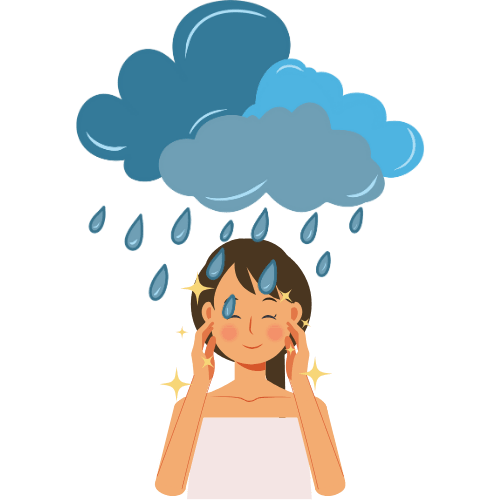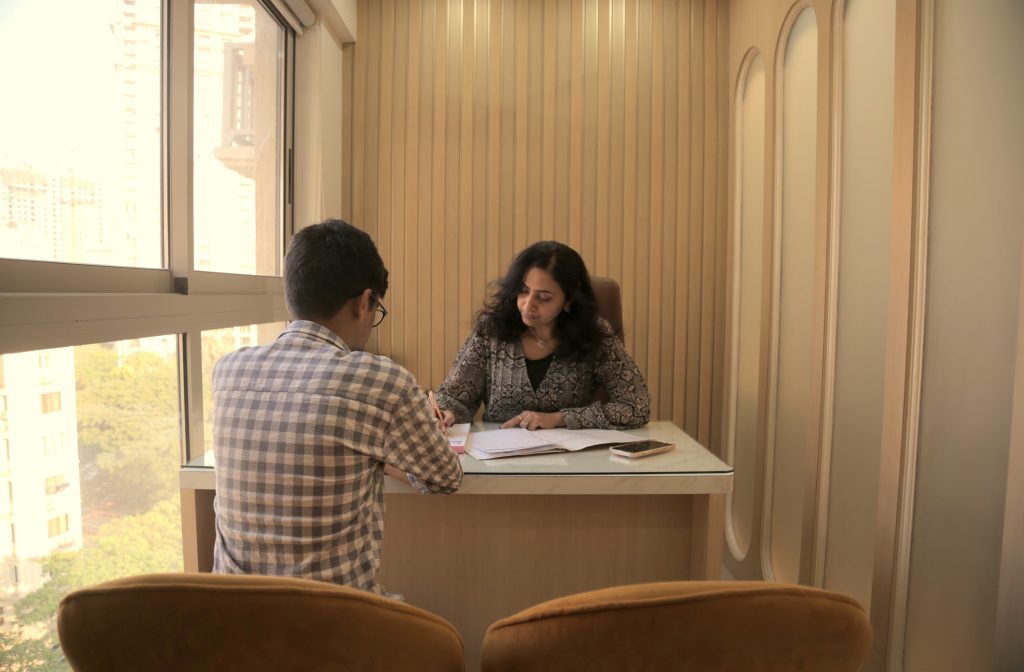Rain Before Monsoon? Here’s How Surprise Showers Can Wreck Your Skin Barrier – Check out our Rainy Season Skin Care Guide
If you live in Mumbai, you’ve probably noticed it already: May brought an unexpected downpour this year. Streets flooded, humidity soared, and your skin? It’st probably feeling confused, itchy, or suddenly breaking out. You’re not imagining it.
What is your Skin Barrier?
While the weather app said “summer,” our skin faced early monsoon mode. And this sudden weather twist has left many Mumbaikars, from college students to working professionals, dealing with new, annoying skin issues.
Think of your skin barrier as your body’s natural umbrella. It protects you from pollution, bacteria, allergens, and moisture loss. When it’s healthy, your skin feels soft, even-toned, and comfortable.
But when the weather gets unpredictable like unexpected humidity and heavy showers in May, that barrier takes a hit.
How sudden rain affects your skin barrier:
- High humidity makes skin greasy and clogs pores.
- Sudden dampness creates a breeding ground for bacteria and fungus.
- Indoor air-conditioning dries skin out while the outside stays damp.
- Temperature swings confuse your skin, triggering inflammation and sensitivity.
The result? Breakouts, dullness, rashes, flaky patches, and that dreaded sticky feeling.

Protecting your skin today ensures healthy skin tomorrow.
Get a personalized skincare plan with Dr. Reshma Ahuja. Explore solutions for dry skin, acne scars, itchy scalps and much more.
Most Common Skin Problems During the Sudden Rains
Mumbai’s unexpected May showers have triggered a surge in skin concerns and while every case is unique, here are some of the most common issues people may face during sudden humid weather changes:
- Fungal Acne: Those persistent, itchy little bumps on your forehead, back, or chest? Often mistaken for regular pimples, this type of acne flares up in moist, sweaty conditions and doesn’t respond to standard acne treatments.
- Seborrheic Dermatitis: Redness, greasy scaling around the nose, eyebrows, and scalp is common during humid spells. This is your skin reacting to yeast that thrives in warm, damp environments.
- Skin Sensitivity: Skin suddenly feels stingy or looks blotchy after using your go-to cleanser or serum? A compromised skin barrier is often to blame, triggered by weather shifts and over-cleansing.
- Body rashes and chafing: Wearing damp clothes for too long, sweating in tight outfits, or staying outdoors in humid heat can cause chafing, rashes under the breasts, or in skin folds especially when moisture gets trapped.
So, What Can You Actually Do About It?
Here’s what we recommend to patients walking into our clinic in Powai as the basic rainy season skin care guide:
- Strip Your Skincare Routine Back to Basics
No exfoliating, no scrubs, no harsh actives. Stick to a gentle, fragrance-free cleanser, a lightweight moisturiser, and sunscreen. - Use a Barrier Repairing Moisturiser
Look for ingredients like ceramides, panthenol, niacinamide, or squalane. These help calm inflammation and rebuild your skin. - Don’t Sleep with Damp Skin or Hair
The fastest way to develop fungal infections? Sleeping on a damp pillow or going to bed with wet hair. Make sure you’re dry before bed. - Go Easy on Hot Showers
It’s tempting, we know. But hot water strips your skin of natural oils. Lukewarm water is better for barrier health. - Book a Skin Consultation if Symptoms Persist
If your skin isn’t getting better in a week or two, or symptoms get worse, you may need topical treatment. Don’t self-medicate as fungal acne, in particular, often gets worse with the wrong creams.
Final Thoughts – Protect your skin today, thank yourself tomorrow
Rain in May may sound romantic, but it’s a nightmare for your skin barrier. The key is to act before the monsoon hits full swing. A few tweaks to your routine now can prevent bigger skin issues in June and July.
P.S. Have you been feeling sticky, itchy, or irritated lately? Your skin might be trying to tell you something. Book a consultation with Dr. Reshma Ahuja and get expert guidance before Mumbai’s real monsoon kicks in.


